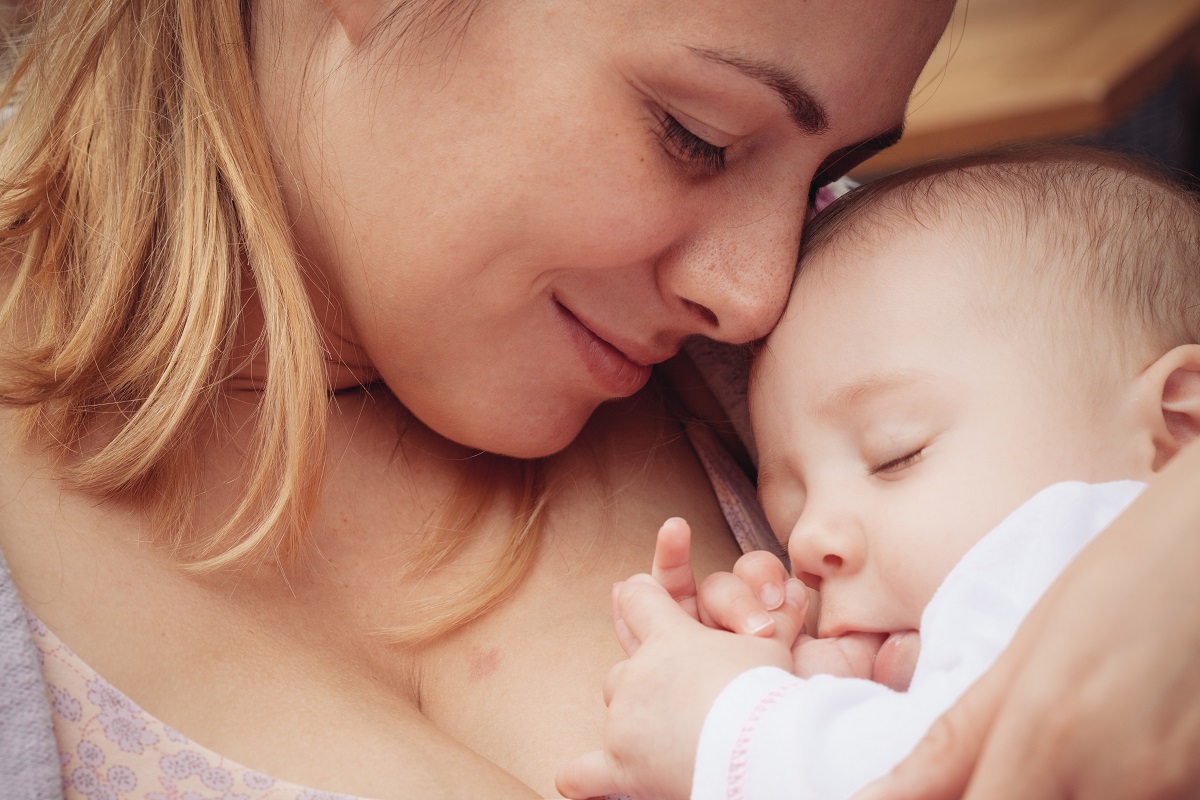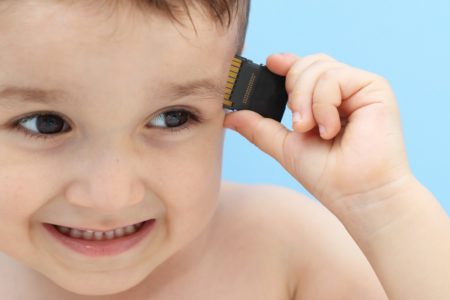Everyday you take care of your child, hoping they’ll grow to become a healthy and happy person. Even though today, now, it may seem that childcare consists of monotonous and ordinary activities someone has to do, one day you’ll see how crucial your effort was.
Parenthood is nice, easy and comfortable only in commercials. Reality, as we all know, is different. You’re sleepy, your back aches, and it’s hard to plan anything. Sometimes you feel like a feeding, changing, and carrying machine. Naturally, there are those beautiful, touching, satisfying moments, but there is also monotony or exhaustion. That’s why it’s worth recalling why all those everyday care activities are so important. What they mean and what they actually give to the baby. Maybe it’ll be easier when you realize that:
Reacting to their crying makes them feel safe
Psychology provides an ample evidence that a parent, who reacts to their child’s crying and needs, ensures their good emotional start in life. Children whose loving, calm and responsive parents are always nearby, develop the safe attachment style, which is a basis for creating important relations in life, for self-value, and for mental health. It’s important for all children, regardless of their personality, and especially important for children seen as “difficult,” “demanding,” “high need,” or “inconsolable.”
If your child often cries, won’t calm down in bed, wants to be always close to you (carried,cuddled, nursed), your understanding and appropriate reaction to their crying are invaluable for them. In the future this will help them realize that – despite their sensitivity – they can cope with different problems life throws at them. By reacting to their crying, by cuddling, carrying and providing care and the feeling of safety, you aren’t “spoiling” them – quite the contrary, you’re strengthening them, building their inner strength and resistance.
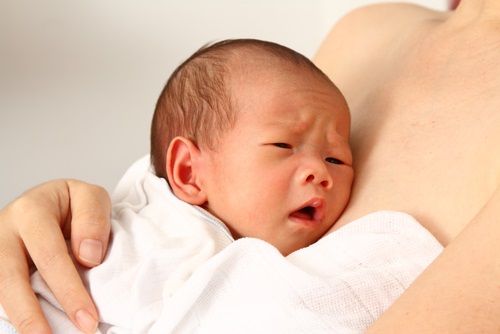
Sleep is important for the brain
Peaceful sleep is extremely important for children’s nervous system. An infant’s brain works differently from an adult’s, and their sleep differs as well. An adult needs a long overnight sleep, whereas babies need to nap during the day and shorter periods of sleep at night, broken with nursing. However, the sleep is vital for the brain so that it can develop, regenerate and organise the information it constantly absorbs. Moreover, a regular rhythm of sleep and naps orders the daily rhythm and makes the child feel safe.
Walks increase the baby’s resistance
Although everyday walks may be tiring, thanks to them the baby’s immunological system gets used to temperature changes, and fresh air and UV rays (which allow skin to produce an extra dose of vitamin D) strengthen it even further. By walking often, you both get used to being outside, spending your time actively and exploring the world around you. Moreover, more blood and oxygen reach the tissues.
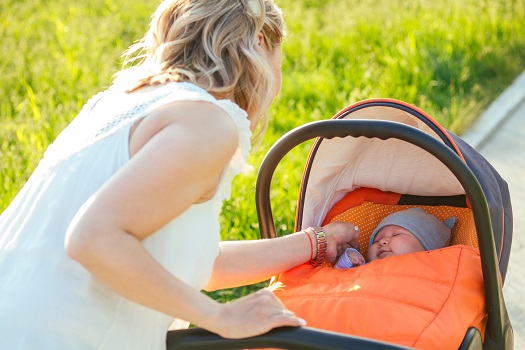
Breastfeeding programmes health
Whether you breastfeed or support your breastfeeding partner, both parents have things to do in that regard. Remember that breastfeeding does not only mean nourishing the child and building their health now. Breast milk contains biologically active cells, hormones, enzymes, the best proteins, fats, and carbohydrates – all of which influences the child’s nutritional programming. Thanks to that, in the future your baby’s metabolism will be better and they’ll have more chances for a slim figure. Natural nourishment protects from civilizational diseases, supports brain and eye development, protects from allergies. Sucking is also an important part of speech and occlusion development.
Playingis good for the motor system
To you, swinging a rattle or rolling a ball is nothing special, but for an infant baby’s motor system it’s tremendously important. It is during free-play activities on a hard surface that babies practise coordination and precision, and each time they try to reach for a toy or turn to you increases the skills, they’ll need for crawling, sitting, and eventually walking.
Swimming (well, playing in water) is also very good for children. But don’t worry if you can’t take them to a pool and remember that activities on the floor are the basis for good development of motor skills.
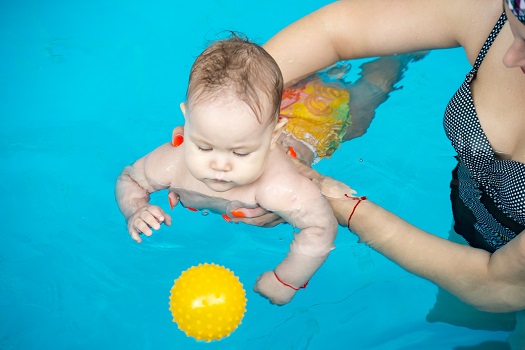
Carrying and rocking develop balance
When you carry a child (in your arms, sling, or an ergonomic carrier), you’re training their vestibular system, i.e. the part of the nervous system responsible for balance and movement planning and coordination. Moreover, when you walk with them, the child – even though in your arms – still has to balance their body, adjust to the changes in position, which supports the development of the muscle and nervous systems.
Massages build a body map
A soft,warm touch during a massage helps children integrate sensations from different parts of their body. It does not need to be a professional massage that follows strict rules. It’s enough when you warm some oil in your palms and then rub it into the little body with sure, delicate, long, and calm movements, making circles or half-circles and controlling the baby’s reactions – checking what they like and what they don’t. This activity takes care of the skin, supports nervous system development, their brains build a map of their body and, last but not least, it is an opportunity for caress and closeness.
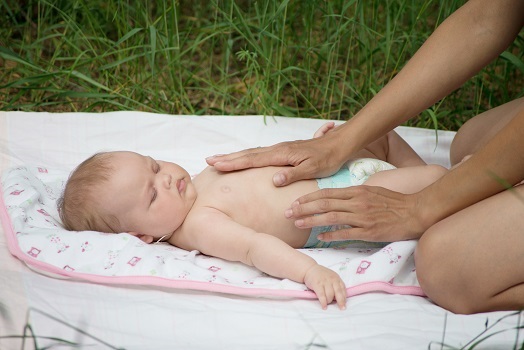
Your talking develops speech
When youchange your baby’s nappy or clothes, you look into their eyes, smile, talk.They don’t understand your complex sentences, but they do learn one very important thing: the fact that you can communicate, that talking to parents is nice, that different sounds form a kind of melody… That way their cognitive skills, as well as hearing and social reactions, develop. All are very important! Children, whose parents talk to them, develop their speech faster, and understand more.
These are only a few ways you contribute to your baby’s development. Every day you support them in a million ways. Remember about it and appreciate what you do. Perhaps thanks to that it will be easier for you to gather your strength everytime your baby needs you.


